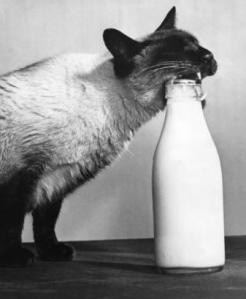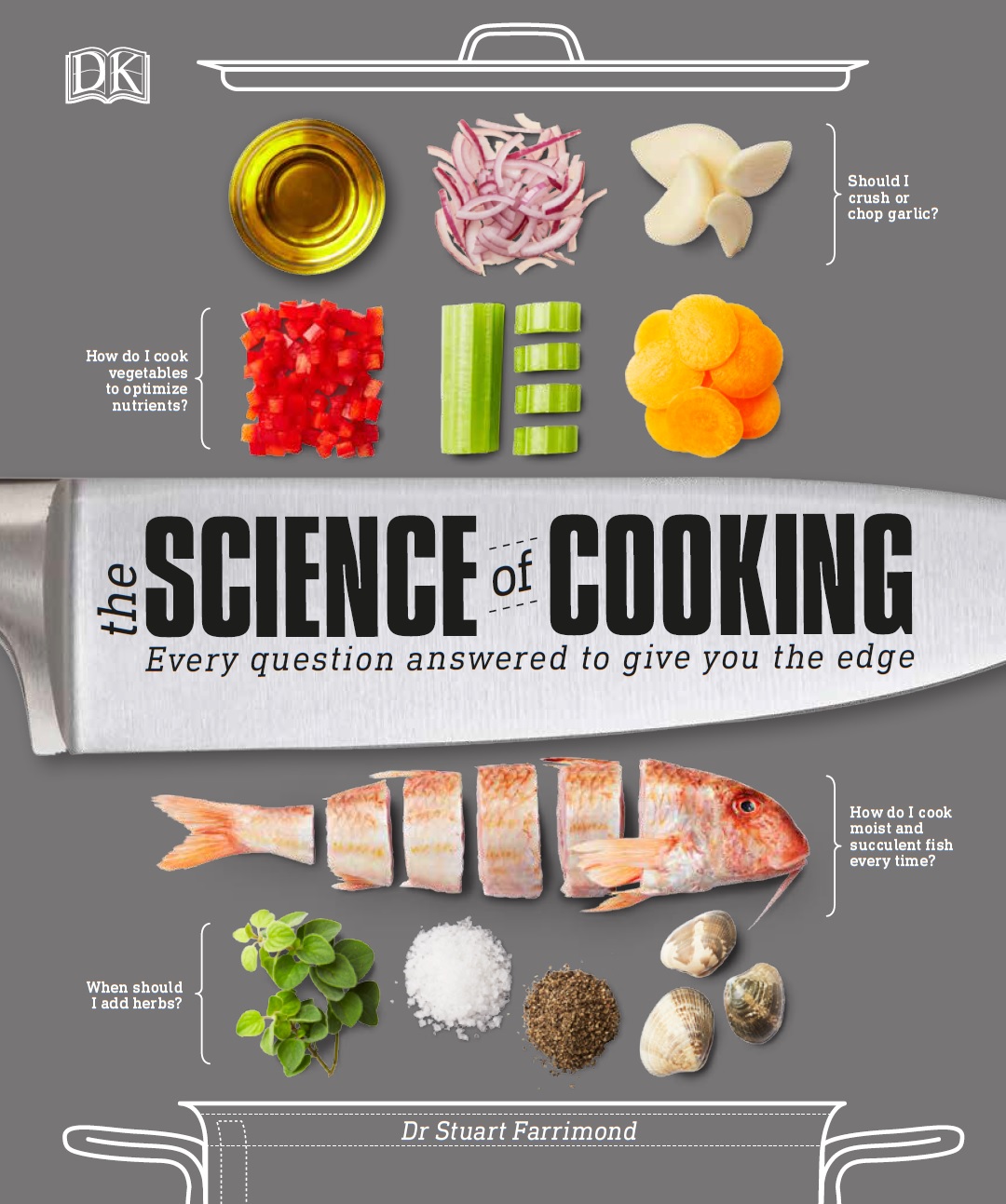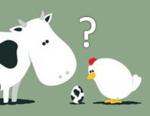Sub-zero temperatures can be hazardous. If frostbite, hypothermia and road accidents weren’t bad enough; now our milk bottles are exploding!
In a previous post, Ruth wanted to know the answer to her milk bottle saga:
“My milk was frozen this morning so that the cream erupted out of the bottle in a column. I see why that happened but why did this bit of cream taste really sweet?”
After promising to investigate and learning about the science behind a simple bottle of milk, it seems Ruth has discovered an ingenious way to get naturally sweet cream…
What happens when you freeze milk?
Milk is mostly water, so when it turns into ice (at about -0.5 degrees C) it expands as it freezes. So if the bottle is pretty full then an eruption is likely…
Milk isn’t just water though; it contains fats, proteins and sugar (lactose). If you’ve ever made an olive oil salad dressing, then you will know that fats (oil) and water don’t like to mix. It is the same with the milk fats: They help to give milk its nice white colour and they are dissolved, but only just. If you freeze milk slowly, then as the water turns to ice the fats ‘condense’ out and rise to the top as cream.
So why did Ruth’s cream taste so sweet?
Why does frozen cream taste sweet?
Ruth’s main question had me stumped: milk contains sugar (called lactose) but why would the cream taste particularly sweet? Well, I eventually found the answer in a 1935 research paper where researchers in Washington, USA devoted months of research to what finding out all the different things that happen to milk when you freeze it!
Those of you who have sugar in your tea will testify: sugar mixes and dissolves well in water with a bit of a stir. The sugar in milk (lactose) is a bit different, and doesn’t dissolve in water as well.
So, in the same way cream separates from milk when freezing, so does the sugar. The researchers found that cream from frozen milk had sucked up lots of lactose from the milk and so tasted sweet!
Is it safe to freeze milk?
If you forego the risks associated with potentially exploding milk bottles, drinking milk that has been frozen is perfectly safe. If you fancy stock-piling a few bottles of milk for a rainy day, then freezing is good way of stopping it going off. If you freeze it quickly, it is less likely to separate. But when it is defrosted, a good shake will mix the cream and the liquid back together again, giving you the perfect accompaniment to your morning Cheerios!
Read More:
Advice on freezing milk from the Food Standards Agency
Guidance on storing and freezing breast milk
Read all about the Chemistry and Physics of Milk!
Web, BH and Hall, SA. (1935) Some Physical Effects of Freezing upon Milk and Cream. Journal of Dairy Science Volume 18, Issue 5 , Pages 275-286














Thanks Dr Stu,
I was thinking is this a way to make lactose free milk for people who are lactose intolerant ? Happy Christmas. Ruthie
Posted by Ruth Behan | December 23, 2010, 12:09 pmIt could be… but it probably wouldn’t get rid of all the lactose. You can buy lactose-free dairy milk. They get rid of the lactose by adding an enzyme to break it down into simple sugar. The enzyme they add is the same one that is missing in people who are lactose intollerant (lactase) - so it should have exactly the same nutritional benefits as normal milk (Apparently, it makes the milk taste a bit sweeter).
Posted by Stuart Farrimond | December 29, 2010, 10:50 amDr Stu,
Could you please tell me if these’s any sucrose and fructose in milk?Thanks a lot
Posted by NanZhang | October 31, 2012, 9:16 amHi there - thanks for the question.
In a word, no.
The main sugar in milk is lactose. There are minute traces of other sugars (e.g. glucose). Fructose comes from plants (fruits and vegetables). Sucrose is present in fruit and vegetables, but is principally isolated from sugar cane and sugar beets.
Lactose is actually a disaccharide - meaning it is made of two, more basic, sugars. When digested, it is broken down into glucose and galactose.
Hope that answers your question!
Posted by Stuart Farrimond | October 31, 2012, 6:53 pmI just want to know the minute sugars in milk .If possible could you offer me some research papers.Thank you very much!
Posted by NanZhang | November 1, 2012, 8:37 am